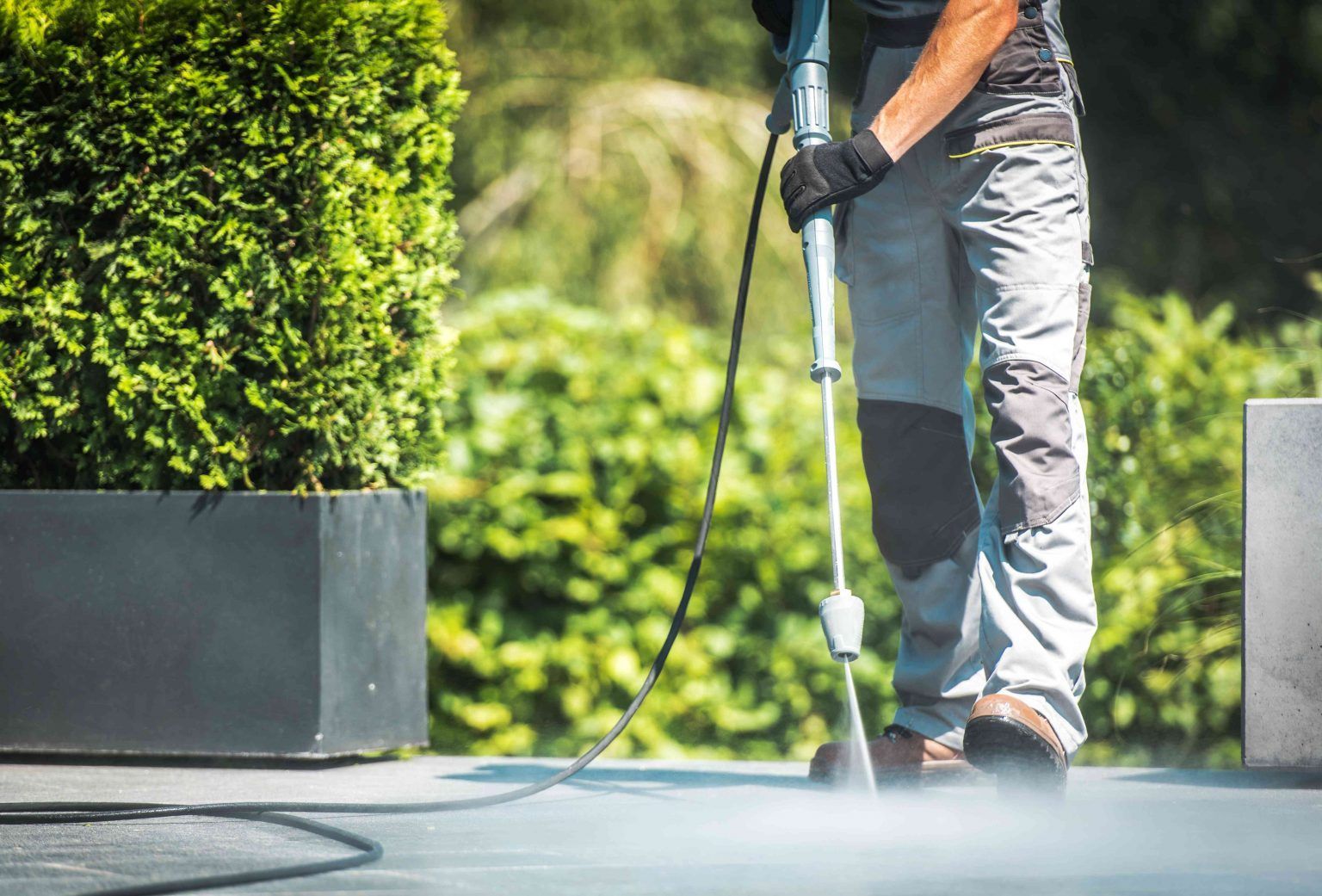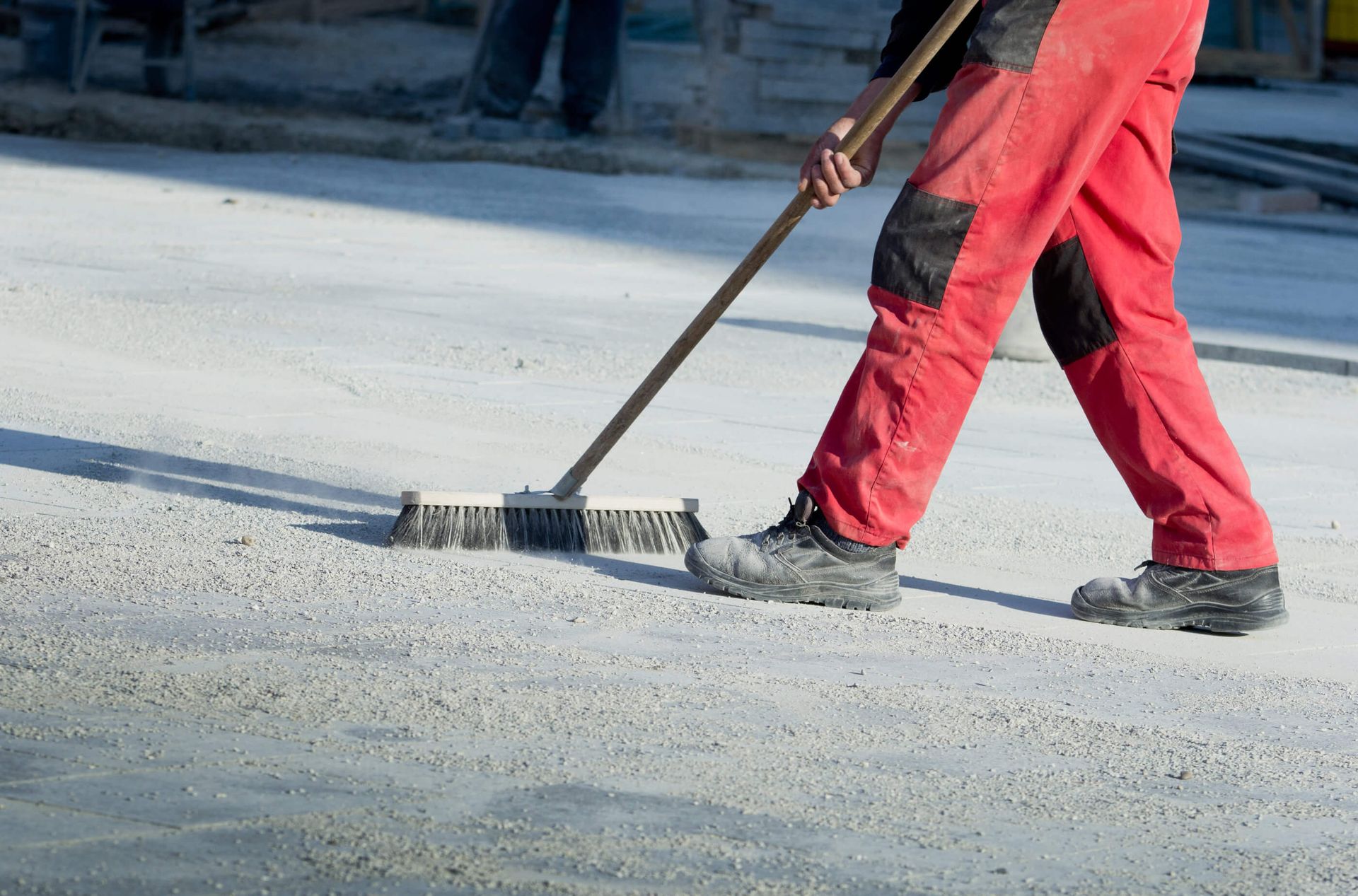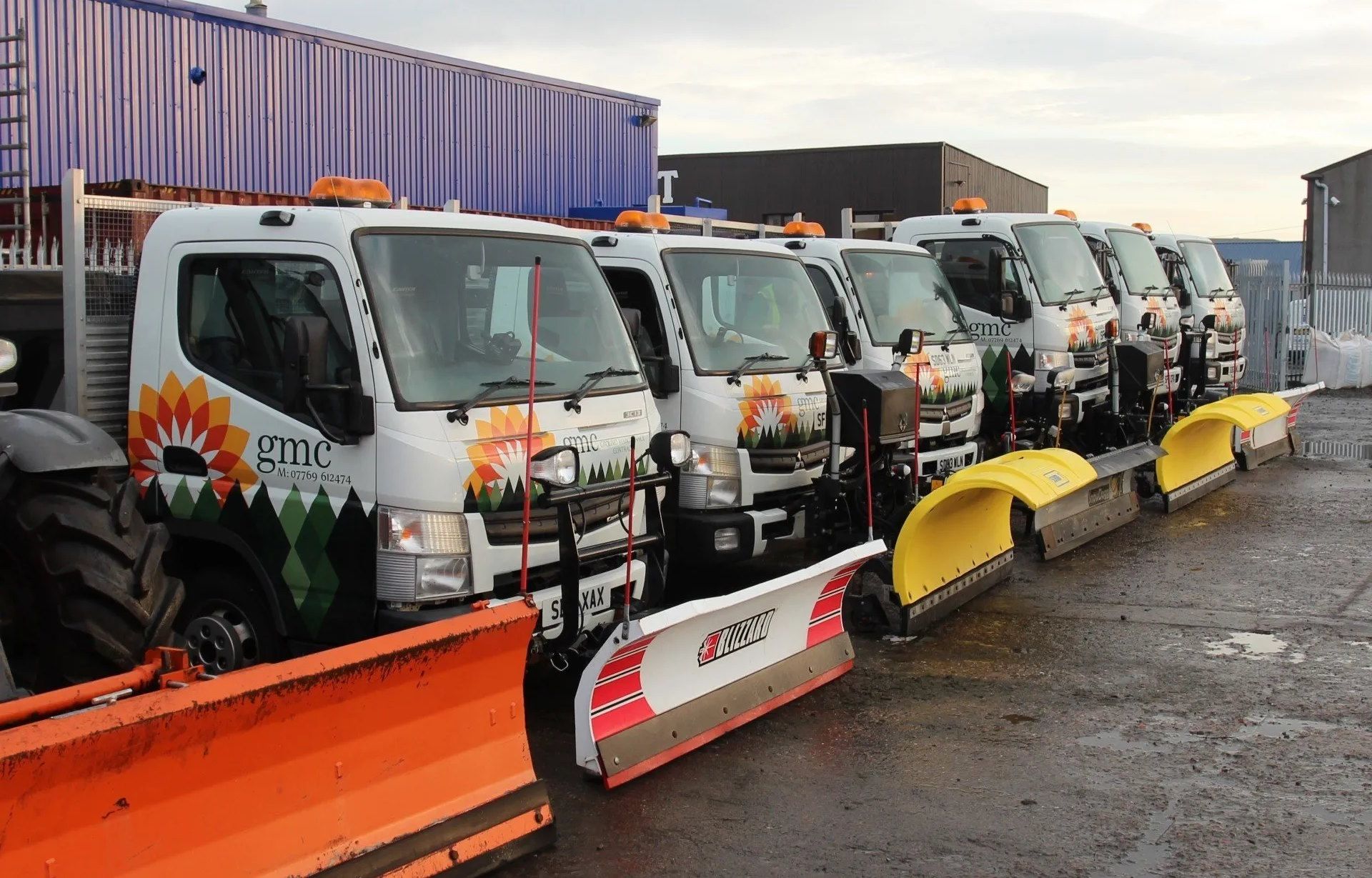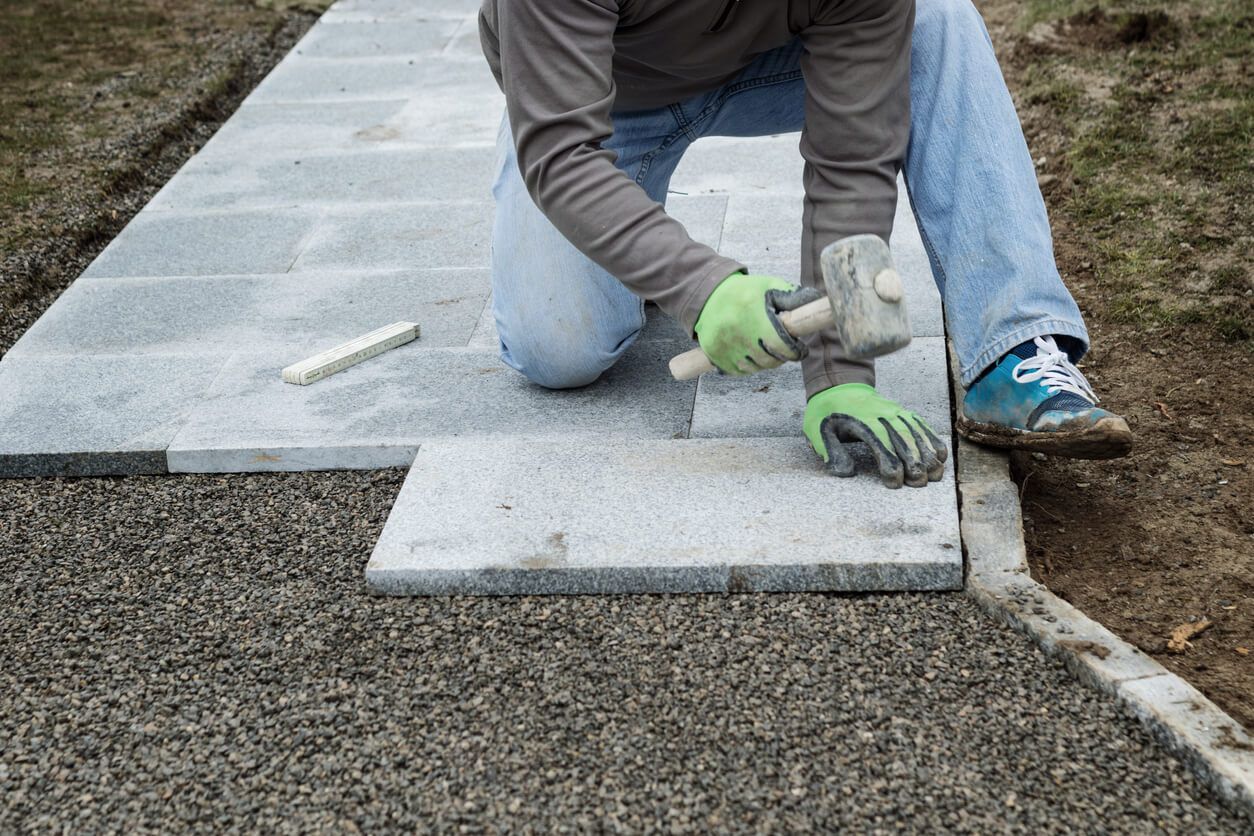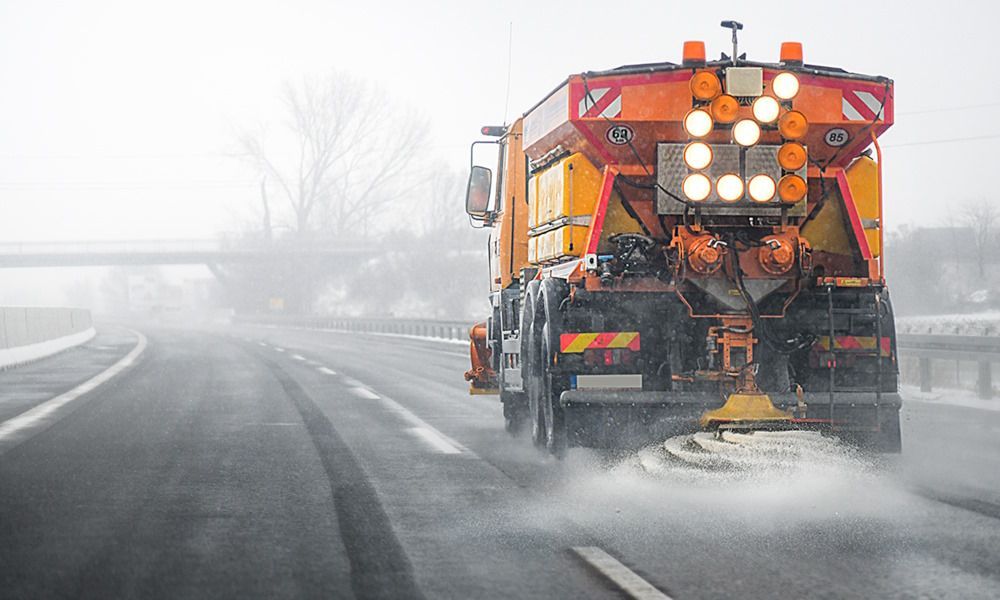What is a Road Gritter and How Does It Help Your Road?
If there's one thing that you can rely on seeing on the road when the weather gets colder, it’s grit. You might see a scattering around on particularly cold days, or a large amount on snow days. While small businesses rely on hand scattering of grit, most of the distribution of grit is done using a road gritter.
But what is a road gritter and how does it help throughout the winter? Read on to find out more.
What Is Grit?
The grit used on roads is essentially just rock salt. However, this is not the type of rock salt you would use in a kitchen. The name more accurately describes the texture of the grit. It’s a type of crushed rock salt, usually brownish in appearance and has a similar appearance to gravel.
While it is usually brown, clear grit is also available. Clear grit is more often used in front of businesses and shops, to avoid unsightly brown ground in front of their stores and prevent customers from bringing this in on their shoes.
Where Does Grit Come From?
Grit comes from natural salt beds, which are shafts from around 100 metres deep to more than a mile. Workers form tunnels and caverns by digging and extracting salt. This grows the tunnels to massive proportions, easy enough for large vehicles and equipment to be installed and moved around at ease. The UK alone has more than 140 miles of tunnels, which must be maintained. These caves are carefully planned out to prevent a collapse, using rock mechanics to leave pillars of salt to support the mine.
In the UK, salt is commercially mined at three main sites in Winsford, North Yorkshire and Carrickfergus. It’s mined with two methods using tungsten-carbide picks, continuous mining and cut & blast mining. Both methods involved extracting lumps of rock and then it is sorted into the ideal sizes. The salt is treated with an anti-caking agent to stop the grit from coagulating, where it is then sold and distributed for gritting purposes.
Clear grit is harvested by evaporating seawater and not from underground, as the underground conditions are where it gets the colour from.
What Is A Road Gritter?
A road gritter is a tool that is used to grit all sorts of roads, public highways and properties. They are an essential winter maintenance tool. A gritter is typically attached to the back of a lorry or a truck. This vehicle is specifically designed to be used in severe weather conditions, having extra traction on the tyres to help it stay safe on the road. Sometimes a snowplough is also added to the front for more effective snow clearing.
Tractor gritting is a cost-effective method of clearing roads, as many go unused during the winter months but are very resilient in the colder months.
When Is Grit Used?
Once temperatures go below zero, moisture that is on the ground begins to freeze and turn into ice. Ice on roads and pavements can increase the risk of accidents exponentially. People walking on pavements may slip and injure themselves, while also stopping them from getting around so easily. On the road, ice can cause cars to wheelspin, which can lead to collisions and accidents. Black ice can form on roads, which is incredibly dangerous. This is a single sheet of smooth ice that can look almost invisible. Black ice is one of the leading causes of accidents, as many drivers do not see it coming.
Grit is used to prevent the formation of ice and to wear down existing snow and ice. It does this by lowering the freezing point of moisture by mixing with the water of the ice, forming a brine that lowers the freezing temperature and causing existing ice to melt away. The salt breaks down bonds between molecules and leaves salty water that can easily drain away and improve the condition of the road.
Vehicles and pedestrians moving over the grit are essential to its effectiveness, as they can help grind it into the surfaces, making grit the most effective when used on areas of heavy traffic and footfall. The ice on surfaces can cause damage to roads if left, so gritting helps to keep surfaces healthy and longer-lasting.
How Can A Gritter Help You?
One of the benefits of a gritter is to provide safe access to your business, for you, your staff and any potential customers or visitors you may have. Seeing slippery, icy roads outside your premises will deter people from entering. This could lose you profits if customers don’t want to come in or decrease the productivity of your business if your employees can’t get in. Road gritting can be used to prevent accidents or injuries at your premises. You don’t want staff or customers getting injured trying to access your store or business. This could result in a loss of profits or even more serious legal issues if someone is injured on your property.
Gritting services are often very convenient, as the council isn't responsible for gritting on private roads or land, even though these are areas where gritting is essential. You can also call for a road gritter 24/7, as grit is often needed at random times that aren't very predictable. You can use a road gritter preemptively, which is great if you want to ensure your business is ice and snow-free in the morning if you think the weather conditions will be terrible overnight.
Grit works best when spread at an ideal time, as too early it can be blown away and has to work a lot harder if spread too late and the ground is already frozen. The perfect time is on damp ground that is not frozen yet. Because this time period often falls in the middle of the night, a gritting service is key to laying it at the right time. Using a gritter at this time helps keep workers safe, as the temperature and visibility are both low, which could cause harm to a person gritting by hand.
Where Are Gritters Best Used?
As government and council gritters are not used on private property or roads, road gritters are best employed on these spaces. This could be car parks, schools, police stations, shops, supermarkets, hospitals and anywhere that people require access to. People should feel like even on an icy day, they should still be able to access buildings and services without worrying about their health and safety.
If you and a few local businesses work on the same industrial complex or street, you could arrange gritting services between you to save money and provide gritting to your whole area, rather than just for your premises.
GMCB Ltd
If you’re looking for professional gritting contractors in Glasgow, Edinburgh and the surrounding areas, get in touch with GMCB Ltd. We offer both scheduled and emergency gritting solutions for whatever your needs, whether it be clearing a car park, road or premises. While the weather is always unpredictable, we offer a 24/7 winter service, where we’ll arrive fully equipped to your site to clear the area as soon as possible.
We’ll make sure your site is safe to use, using our fleet of high-quality gritting vehicles to clear the site of snow and ice quickly. By working with a private gritting company, you can expect the highest-quality and most effective gritting service that won’t leave you with patchy coverage and irregular consistency. With our 24 hour callout, you can have your site cleared by the time any employees are due to arrive. We offer both preventative and reactive gritting services, laying grit the night before in case of bad weather or coming out in the morning to deal with the issue.
We can establish a certain temperature with you, and if the temperature drops below this agreed level on the MET office forecast, we will automatically deploy a team to preemptively grit your property, saving you the time you’ll usually take to arrange a gritting service.
So if you need commercial gritting services in Central Scotland, call us today on 07903 211 499 to talk through your gritting requirements with a member of our friendly and professional team. If you want to find out more about how our gritting services can help you or explore our full range of other services,
visit our website now.




